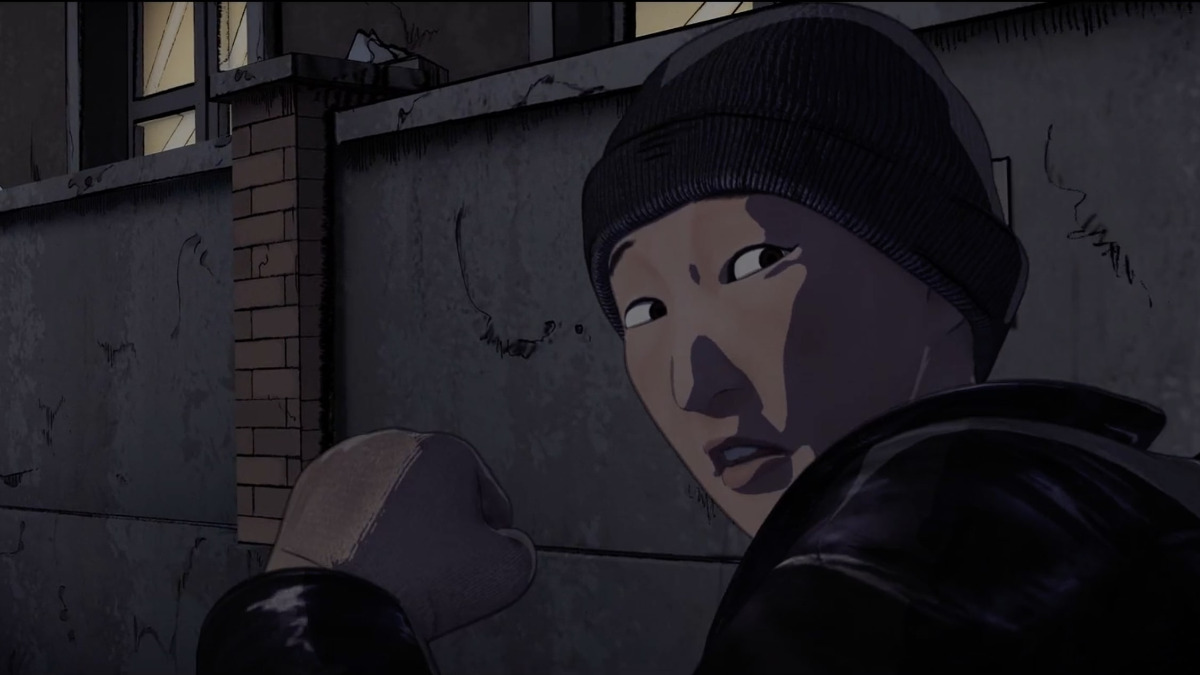Sam Now
(USA, 87 min.)
Dir: Reed Harkness
Sam Harkness was a typical kid in 1990s Seattle—a bit hyperactive, funny, very close with his brother Jared and half-brother Reed—when in his early teens, his mother Jois (pronounced Joyce) suddenly disappeared. A police investigation eventually turned up trumps, revealing that Jois was fine but didn’t want to be in contact with her family anymore. Jared took it hard as did Jois’ ex-husband and mother-in-law, but Sam seemed to take in stride, playing the lead in Reed’s increasingly elaborate Super-8 movies and creating his own costumed hero persona The Blue Panther. But after several years without her, Reed sprang the big question to his brother, ‘Shouldn’t the Blue Panther find his mother?’
Reed and Sam go on the road in classic American style from Seattle to Long Beach, California and then up the coast to Oregon, with their search turning out not to be terribly difficult before they find Jois. More problematic for Sam—and Reed captured this beautifully in footage shot at the time—is his negotiated entry back into Jois’ new life. It’s astonishing how easily that occurs.
Jois welcomes him back and even returns to visit her old family in Seattle, filled with embraces and no explanations. Though they’re all a bit astonished, the Harkness family takes Jois back as if she’d left in a more conventional way, perhaps because they’re so pleased that the boys have their mother back. The big question, of course, is why did Jois disappear?
Sam Now is a mystery story, most of which is based on psychology rather than detection. It’s beautifully put together with a quietly intimate approach to its complex narrative, rendered through an astonishingly rich archive of Super-8 and home-video material shot by Reed of his brother and their disjointed, likeable family over 25 years. While the Harkness tribe love Sam and Jared, they aren’t equipped psychologically to deal with the stress caused by Jois’ departure until Reed finally forces the issue by partnering with his half-brother in the quest find his missing mother.
Harkness’s film is a joy to watch in part because it doesn’t wear its artistry on its sleeve but make no mistake: this is a film of depth, which ultimately investigates trauma. With voice-over narration by Reed–a classic “fifth business” character like Nick Carraway in The Great Gatsby, who knows everything but has no influence on the main storyline–Sam Now is a multi-layered family tragedy, where ultimately people are damaged permanently with no one to blame.
Jois’ story is slowly revealed as the film develops. She’s the daughter of an American soldier and Japanese woman in the years immediately after World War Two–a pariah, despised by the Japanese, abandoned by her parents and eventually adopted by west coast white Americans, who always made her feel that she could be returned if Jois didn’t act the part of a proper daughter. Jois, as a young woman, fit the image of a “pleaser,” someone willing to do whatever was necessary to make people like her. She married twice, was a fine mother, and then met a man who wanted her, but not the kids. When asked to give up everything she had for a new way of life and a new man, Jois went for it.
Placed into the context of a person dealing with trauma, Jois’ behaviour becomes understandable. Never given love as a child, Jois learned to act in a way that others—husbands, step-parents, children, in-laws—would find acceptable, even admirable. But when offered a way out by a new lover, Jois didn’t even question her total abandonment of her life. And when asked back, by Sam, who still loved her and was expecting no explanations, Jois returned.
Sam Now’s denouement, in which we see this extended family in the age of COVID, clearly damaged but still acting normally, is quite disconcerting. It turns out that Sam, as an adult, tried to abandon Jois by stopping communicating with her but she put up a fight and won him back—to a certain extent. It’s fair to say, I hope, that Sam and Jared are Ok, but it would be hard to call them well-adjusted. As for Jois, she’s an aging, attractive person, a self-described narcissist, who has never properly dealt with her multi-generational family trauma. Nor has Sam.
Reed Harkness has made a wonderful once-in-a-lifetime film. Filled with intimate family footage, Sam Now feels like a novel or a well-crafted drama, but it’s all too true. It’s a truly artistic documentary, which should be seen and embraced by discerning audiences in North America and abroad.
Sam Now screened at Hot Docs 2022.











